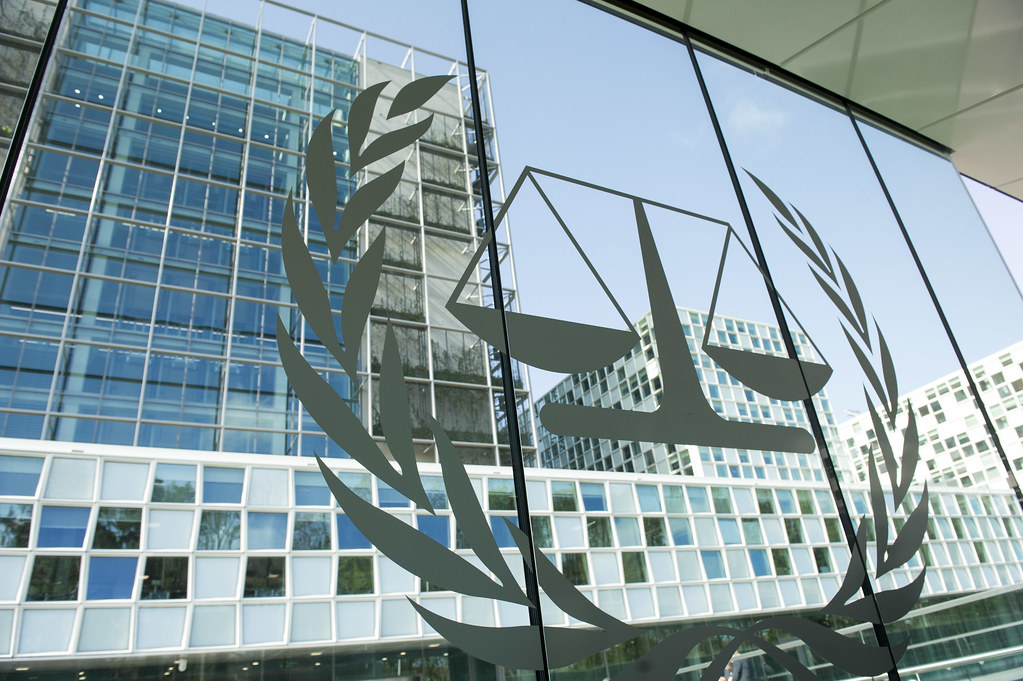IN THE MEDIA
ICC recognising Palestine creates setback for Middle East peace hopes
February 23, 2021 | Allon Lee

Canberra Times – Feb. 23 2021
At a time when Arab states are seeking to end the wider Arab-Israeli conflict, the International Criminal Court earlier this month handed the Palestinian Authority the ammunition it needs to prolong the seemingly interminable Palestinian conflict with Israel.
In determining 2-1 that a “State of Palestine” exists, thus empowering the court’s prosecutor to investigate potential war crimes by Israel and Palestinians at “Palestine’s” request, the ICC pre-trial chamber has significantly set back hopes for an eventual negotiated two-state Israeli-Palestinian peace.
Since 2008, when PA President Mahmoud Abbas rejected “out of hand”, as he put it, an Israeli offer to create a Palestinian state on the equivalent of 100 per cent of the West Bank and Gaza, with Jerusalem as a shared capital, the PA’s strategy has involved lobbying international bodies, including the UN General Assembly, WHO, Interpol, UNESCO and UNICEF, to recognise that a sovereign Palestinian state supposedly already exists.
The plan was to hopefully enlist the international community to force a unilateral Israeli withdrawal from the West Bank, thus establishing a Palestinian state without the need for the PA to make peace with Israel or offer any concessions whatsoever. That’s why the PA has rejected all peace talks since 2014.
The fundamental reason why the ICC should have rejected “out of hand” the ICC prosecutor’s petition is that “Palestine” comprehensively fails to meet the threshold for statehood under international law, as set out in the 1933 Montevideo Convention. No sovereign Palestinian state has ever existed.
The PA doesn’t control its borders and its territory is disputed. Moreover, there is no central political authority heading the “State of Palestine” – the PA operates solely on the West Bank, having lost Gaza to the Islamist group Hamas in a violent coup in 2007.
So, what convinced the ICC’s pre-trial chamber?
Its decision to recognise a “State of Palestine” for the purposes of an ICC investigation was based almost solely on UN General Assembly resolution 67/19 from December 2012, which granted Palestine “non-member observer state status”.
But UN General Assembly resolutions are not legally binding, and this one was, as a matter of both fact and law, absurd, as the ICC’s dissenting Judge, Péter Kovacs of Hungary, noted.
He wrote of the 2012 resolution: “I am unable to identify the actual rules of international law and the actual legal approach of the [UN] regarding Palestine’s statehood and its territory and borders on which the majority decision is based.”
The fact is that, thanks to the automatic support of the 57 members of the Organisation of Islamic Cooperation and some additional allies, the PA routinely musters enough votes to pass politically charged, factually dubious General Assembly resolutions such as that one.
These resolutions damage hopes for peace by discrediting any UN role in the process and prejudging crucial issues that need to be negotiated between Israel and the Palestinians, thus encouraging Palestinian intransigence.
If the ICC takes its cues from the explicitly political UN General Assembly then any claim it makes to be an independent, non-political judicial body becomes a joke.
It is disturbing that some have welcomed the ICC decision as a victory for justice and international law – apparently untroubled by the fact that it was reached by trashing the very legal principles they say they want to uphold.
According to the Statute of the ICC, only signatories to it can be investigated, unless the ICC receives a referral from the UN Security Council. Israel has not joined the ICC and no Security Council referral has been issued.
Moreover, the ICC was established to investigate the most heinous war crimes in circumstances where a country cannot or will not do so itself.
Israel is one of the most scrutinised and open societies in the world. Its robust and fiercely independent legal system routinely investigates and, if required, prosecutes individuals accused of the sorts of crimes that fall under the ICC’s purview. Israel’s Supreme Court regularly issues injunctions filed on behalf of Palestinian claimants.
President Abbas wants an ICC probe into Israel’s conduct during its 2014 war with Hamas – even though Israeli legal authorities have already investigated numerous allegations of misconduct during that war.
If Abbas genuinely was seeking justice for his people, he would ask the ICC to investigate Hamas, which not only triggered the conflict through the war crime of indiscriminately firing rockets at Israeli civilians, but employed the tactic of deliberately firing them adjacent to schools and hospitals in heavily populated areas of Gaza, effectively turning Palestinians into human shields.
This is also a war crime, and something any Palestinian leader concerned about the welfare of his people should want stopped.
Appropriately, Australian Foreign Minister Marise Payne and the newly minted Biden administration have condemned the decision. Australia was one of several democratic countries that filed a petition with the court last March opposing it recognising a Palestinian state. And although the Arab League ostensibly supported the PA’s ICC application, in fact, the majority of its members today want the conflict to be over, not further entrenched.
It is hard to see how the supposed best legal minds at the ICC cannot realise their choices have not only damaged their own brand as a supposedly independent and non-political international legal body, but have materially damaged hopes for a peaceful resolution of the Israeli-Palestinian conflict.
Allon Lee is a senior policy analyst at the Australia/Israel & Jewish Affairs Council.





